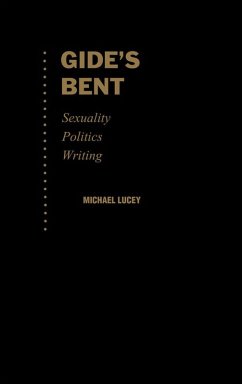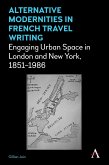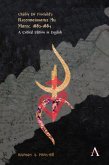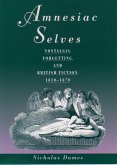Through close readings of his memoirs, novels, and political tracts, Gide's Bent interrogates both the political content of Gide's ways of reflecting on his homosexuality and the ways his sexuality inflected his political interests.
One of the first modern writers to be "out," Gide used his writings during this period to do more than simply publicize his homosexuality. He also wrote in a way that reveals sexuality itself as an arena that challenges easy distinctions between public and private. His writing thus addresses not
only the psychoanalytic, but also the social and even political foundations to the formation of any private sexual subjectivity; it further considers the ways personal, private struggles might be implicated in or lead on to larger public engagements. Gide's Bent follows this complicated writing
practice in Gide's psychoanalytically complex novel The Counterfeiters and in his attempt at a feminist narrative, The School for Wives; in his explicit memoir of his early life, If It Dies; in Corydon, his idiosyncratic investigation of pederasty; in his anti-colonialist travel journal, Travels in
the Congo; and in his disillusioned Return from the U.S.S.R..
Dieser Download kann aus rechtlichen Gründen nur mit Rechnungsadresse in A, B, BG, CY, CZ, D, DK, EW, E, FIN, F, GR, HR, H, IRL, I, LT, L, LR, M, NL, PL, P, R, S, SLO, SK ausgeliefert werden.









